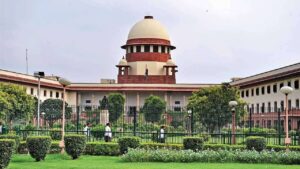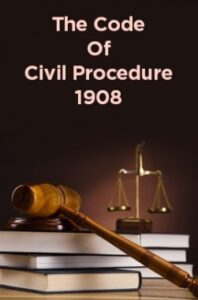REVIEW JURISDICTION OF SUPREME COURT OF INDIA
Author: Utkarsh Srivastava
Advocate-on-Record, Supreme Court of India
In this article, we are going to discuss upon the review jurisdiction of the Hon’ble Supreme Court of India vis-à-vis the review under the Code of Civil Procedure 1908.
 INTRODUCTION
INTRODUCTION
Article 137 of the Constitution of India gives Hon’ble Supreme Court of India the power to review any judgment pronounced or order made by it.
In furtherance to the above, the Supreme Court Rules 2013 provide a set of rules for review under Part IV Order XLVII.
Rule 1 reads as:
“1. The Court may review its judgment or order, but no application for review will be entertained in a civil proceeding except on the ground mentioned in Order 47 Rule 1 of the Code and in a criminal proceeding except on the ground of an error apparent on the face of the record.”
In addition to above, Order XLVII Rule 1 of Code of Civil Procedure 1908 also provides for an application for review. It reads as,
“1. Application for review of judgment. — Any person considering himself aggrieved—
(a) by a decree or order from which an appeal is allowed, but from which no appeal has been preferred,
(b) by a decree or order from which no appeal is allowed, or
(c) by a decision on a reference from a Court of Small Causes, and who, from the discovery of new and important matter or evidence which, after the exercise of due diligence, was not within his knowledge or could not be produced by him at the time when the decree was passed or order made, or on account of some mistake or error apparent on the face of the record, or for any other sufficient reason, desires to obtain a review of the decree passed or order made against him, may apply for a review of judgment to the court which passed the decree or made the order.”
Thus, in view of the above, the following grounds of review are maintainable as stipulated by the statute:
- Discovery of new and important matter or evidence which, after the exercise of due diligence, was not within the knowledge of the petitioner or could not be produced by him at the time when the decree was passed or order made;
- Mistake or error apparent on the face of the record; or
- Any other sufficient reason.
 ANY OTHER SUFFICIENT REASON: EXTENT AND SCOPE OF REVIEW
ANY OTHER SUFFICIENT REASON: EXTENT AND SCOPE OF REVIEW
The terms “any other sufficient reason” means a reason sufficient on grounds at least analogous to those specified in the rule. [Privy Council in the case of Chajju Ram v. Neki, 1922 SCC Online PC 11 and Hon’ble Supreme Court of India in Moran Mar Basselios Catholicos v. Mar Poulose Athanasius, 1954 SCC Online SC 49].
In Tinkari Sen v. Dulal Chandra Das, 1965 SCC Online Cal 103, Hon’ble High Court of Judicature at Calcutta held that, if the court overlooks or fails to consider a legal provision that grants it the authority to act in a specific manner, this may amount to an error analogous to one apparent on the face of the record.
It was held that a decision erroneous in law is ordinarily no ground for seeking review. However, if the court disposes of a case without adverting to or applying a material provision of law which gives it jurisdiction to act in a particular way, then this amounts to an error sufficient to bring the case within the purview of Order XLVII Rule 1 CPC.
In Girdhari Lal Gupta v. D.N. Mehta (1971) 3 SCC 189, it was held that a review is maintainable where at the time of arguments the court was not able to look into a particular provision because its attention was not drawn to such provision.
Whereas in Northern India Caterers (India) Ltd. v. Lt. Governor of Delhi (1980) 2 SCC 167, it was held that a judgment pronounced by the court is final, and departure from that principle is justified only when circumstances of a substantial and compelling character make it necessary to do so. For instance, if the attention is not drawn to a material provision during the original hearing.
Similarly, in Yashwant Sinha v. CBI (2009) 2SCC 338, it was observed that if a relevant law has been ignored while arriving at a decision, it would make the decision amenable to review. A judgment rendered in ignorance of the applicable law, must be reviewed.
Recently, in Commissioner of Customs v. M/s Canon India Pvt. Ltd., 2024 INSC 854, Hon’ble Supreme Court of India has thus held that,
“67. Thus, the decisions referred to above make it abundantly clear that when a court disposes of a case without due regard to a provision of law or when its attention was not invited to a provision of law, it may amount to an error analogous to one apparent on the face of record sufficient to bring the case within the purview of Order XLVII Rule 1 of the Code of Civil Procedure, 1908. In other words, if a court is oblivious to the relevant statutory provisions, the judgment would in fact be per incuriam. In such circumstances, a judgment rendered in ignorance of the applicable law must be reviewed.”
- CONCLUSION
Thus, as on date it is settled position of law that the general concepts applicable to review of an order or decree are as much as applicable to the review power of the Hon’ble Supreme Court of India and in order to review its judgments or orders, the Hon’ble Supreme Court has to first consider as to whether this power must be exercised or not basing its decision on the concepts of review as laid down in the Code of Civil Procedure 1908 and the decisions rendered on the subject from time to time.
In civil proceedings, the basic concepts or grounds for review of an order, decree or judgment are Discovery of new and important matter or evidence Mistake or error apparent on the face of the record Any other sufficient reason least analogous to those specified in the rule.
Whereas, in criminal proceedings review can be done only on the ground of an error apparent on the face of the record.
YOU CAN ALSO CHECK OUR ARTICLES ON:
- Admission under Order XII Rule 6 of the Code of Civil Procedure: Extent and Scope
- Public Policy of India: When an Arbitral Award can be held to be against the Public Policy of India?
- Insolvency and Bankruptcy Code 2016 (IBC): Enactment Purpose
- Order XXIII Rule 1 Code of Civil Procedure 1908: Whether Applicable to Proceedings under Section 11(6) of the Arbitration and Conciliation Act 1996